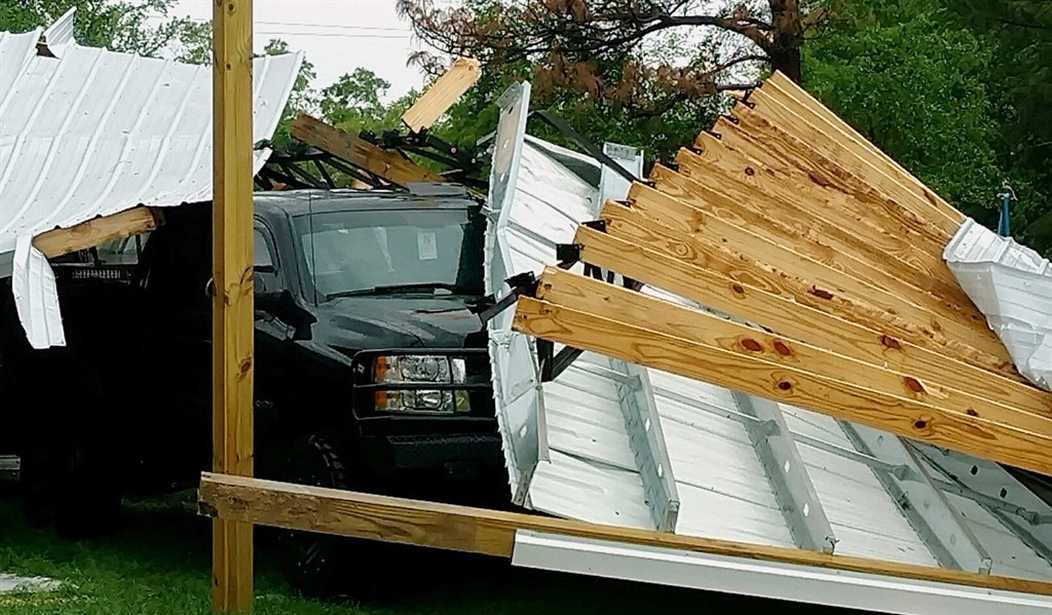As a child, I loved sitting on the wooden swing on the front porch of my family's house in rural Georgia as the summer thunderstorms passed over, counting the number of seconds between the lightning strike and the roar of thunder. The storms reminded me then -- and still do -- of the awesome power of God.
Today, as storms pass through Atlanta, where I now live, I am reminded that, at times during tumultuous periods, all we can do is to seek shelter and to let the winds of change develop and unfold.
Unlike changes in the weather, changes in life -- especially dramatic changes -- often take time. The American Revolution did not happen overnight, but was set in motion by activities in the years preceding our revolt.
For example, English Parliament passed the Molasses and Sugar Act on April 5, 1764 to replace the 1733 law, which had been loosely enforced and was set to expire. The new version expanded the list of taxable items and lowered the rate. The British Navy was enlisted to assist in the enforcement. The effect of these changes was that the colonies had fewer foreign markets where they could competitively sell their goods. This restricted trade reduced their ability to acquire British currency and depressed their economy.
British oppression and taxation continued with the Boston Massacre in 1770, followed by the Boston Tea Party in 1773. On April 19, 1775, more than a decade after the Sugar Act was reconfigured, the Battles of Lexington and Concord officially started the American Revolution.
Recommended
The uprising occurred only after decades of subjugation and arrogance from the British, who sought to take what they wanted from the colonists, who had been granted no voice or vote.
For years, we had gone along -- attempting to be heard, attempting to have a say in the rules and regulations that provided the framework for our lives. When we could no longer go along, the revolt began.
This history still has some lessons for us today: Our current political system is in turmoil after decades during which the populace has been ignored. The election of Donald Trump to the presidency represents a rejection of the class of ruling politicians as well as the political machines on both the Democratic and Republican sides. Once again, overaggressive taxation and subjugation through suffocating regulation helped push the American populace into voting for an outsider- someone who was not part of the broken system of politics as usual.
Watching the lead up to the presidential election was disheartening, if not surprising. On the Democratic side, Democratic National Committee Chair Debbie Wasserman-Schultz resigned after Wikileaks released emails regarding DNC vote-rigging for Hillary Clinton's nomination.
Political analyst and commentator Donna Brazile became the interim DNC chair, but it was soon revealed that she had emailed debate questions to the Clinton campaign prior to her televised faceoff with Trump. CNN fired her.
But the DNC did not: Brazile maintained her role as interim chair until recently. Lesson from the outside -- it's not OK from CNN's perspective to leak questions and provide an unfair advantage -- but it is ok from the viewpoint of the DNC.
On the Republican side, attempts to maintain the status quo of the Republican establishment were crushed by the Trump campaign -- who ran outside the normal channels and systems.
All of these forces will play out over time. The effect of the transition to a populist president will unfold over time. But there is rough weather ahead.
History has also taught us that rough weather can prove fatal. Our 9th president, William Henry Harrison, read his nearly two-hour inauguration address outside on a cold, rainy March 4, 1941. In a show of bravado, he wore neither coat nor hat. He then rode in the inaugural parade and, that night, attended three balls.
On April 4, 31 days later, he died.
Seventy-six years later, the spring storms should remind us how to weather the political storms as well.

























Join the conversation as a VIP Member